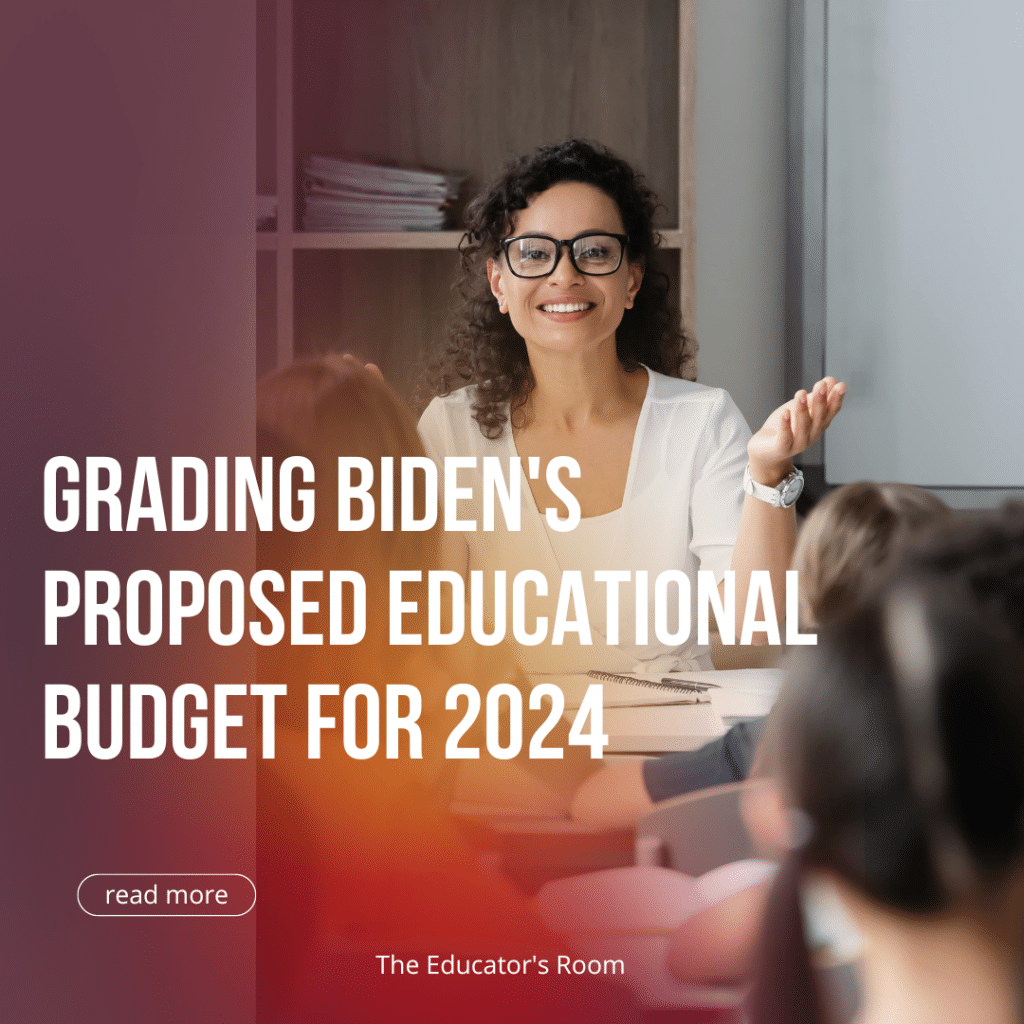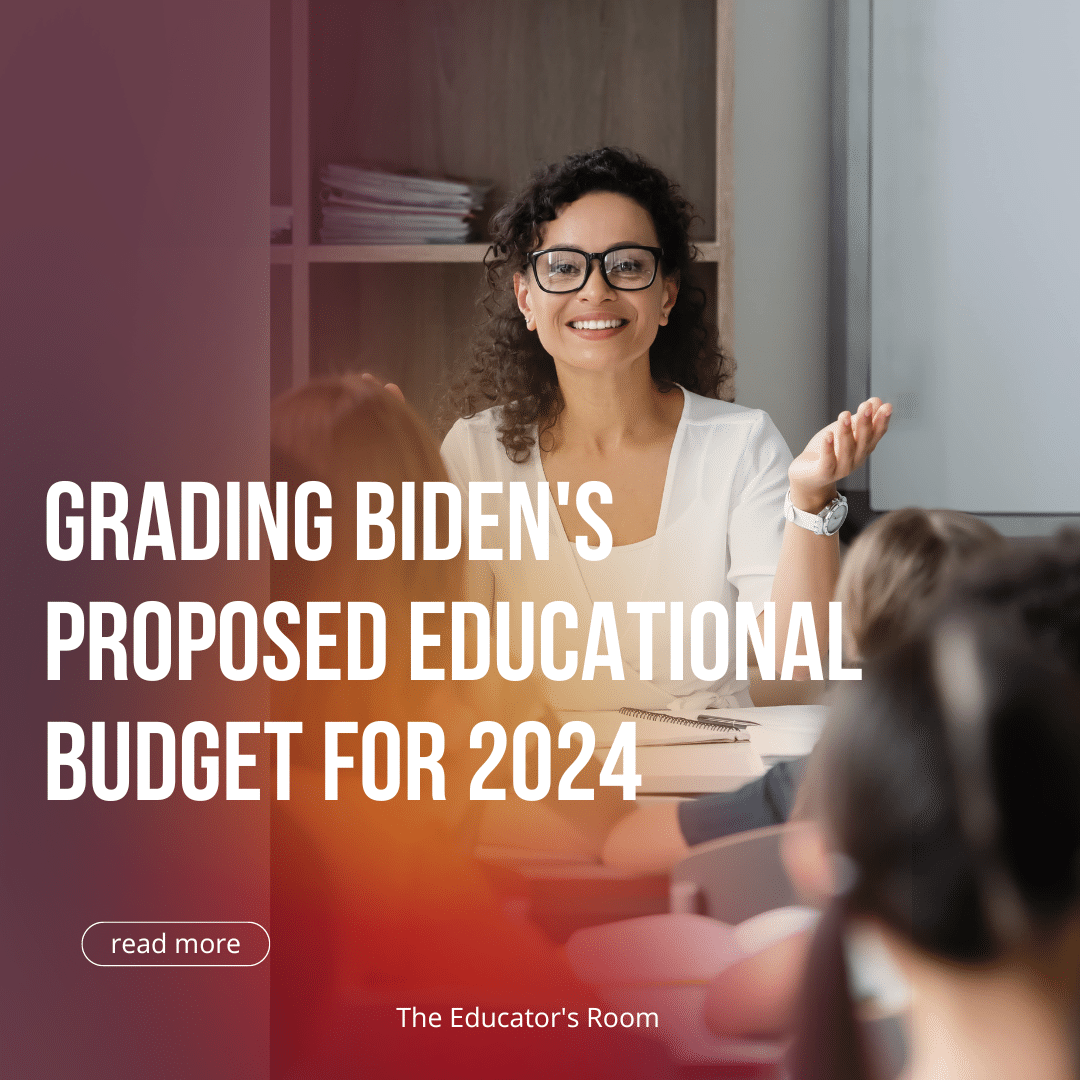There is no doubt that, as educators, we have strong opinions about how the government spends money geared toward education. Teachers and our students require a never-ending list of things to make classrooms adequate and student success attainable. Unfortunately, not an infinite amount of funding is set aside for our student’s educational future. Decisions, and difficult ones, no doubt, must be made about allotting educational funding. From an educator’s point of view, Biden’s budget stacks up reasonably decently, but there is room for improvement.
President Biden’s 2024 proposed educational budget has recently been released, and the budget requests $90 billion in funding, a $10.8 billion increase from the 2023 budget. Although this increase seems like a hefty jump in spending, the budget still falls short of including excess funding for high-poverty districts and the full funding of special education.
Four Critical Topics
The 2024 budget focuses on four critical topics.
- Title I – Title I funding brings much-needed financial assistance to students in our poorest, highest-need school districts. Biden has proposed to increase Title I funding in 2024 by a $2.2 million increase. Although this increase is lower than Title I increases in past years, many high-poverty schools are still spending the Covid funds allocated to them in previous years, which fills in the gaps for the lower allotments in funding.
- SPED services – An additional $2.2 billion in SPED funding for 2024 brings the total budget for this program to $16.8 billion. As our country’s need for SPED services continues to grow, this funding would provide $304 million to retain and train certified SPED teachers and personnel. Unfortunately, this funding still falls short of Congress’s promise to fund 40% of the extra amount required to educate a special education student; the 2024 numbers currently support around 13% per student. Unfortunately, this has been a promise Congress has not met since it originated in 1970.
- Pre-kindergarten programs – A high positive in Biden’s proposed budget highlights a new program “that would require states to make high-quality preschool available to all 4-year-olds through a mandatory federal-state partnership.” Once 4-year-olds have access to preschool services, the program plans to shift its focus to providing for all three-year-olds. The proposal also allocates $500 million in grants for current preschool programs in Title I areas and a $1.1 billion increase for Head Start programs.
- Student mental health – A hot topic in education in recent years, student mental health will receive increased funding through many different means. For example, a proposed budget of $578 billion will provide for “more school-based counselors, psychologists, social workers, and other health professionals.” This is in addition to the $1 billion in funding through the Bipartisan Safer Communities Act and grants programming providing student and family mental health services, gaining an additional $218 million. An additional $100 million will be allotted for a new grant program to “support voluntary community efforts to develop strategies promoting racial and socioeconomic diversity in schools.”
As an educator, these four areas of any educational budget are essential. However, there are additional areas of importance that I would like to see receive substantial increases in funding as well. For example, teacher retention is currently a primary concern in education. I would like to see funds set aside for retaining experienced teachers and bringing in new, highly qualified teachers to all schools in the United States.
I would also like to see additional funding for high school career and technical education programs, which have shown notable growth in our country over the past two years. Lastly, and most importantly, we need substantial school safety funding to initiate more protective safety measures in our schools and combat school shootings. This has become an epidemic in the United States that will require our strictest safety protocols to keep our students and teachers safe. If funding for these three situations is not addressed, education in its current state may take a significant hit, decreasing our chances of successfully educating students in the United States.
Grade
Overall, I give Biden’s educational budget proposals for 2024 an overall grade of B-.
Although some tried and true education sectors are receiving the funding they need and deserve, some areas of education have been overlooked and could greatly benefit from the growth and support that increased national funding would provide.

About the author: Ashley Chennault is currently a freelance writer and 4th-grade teacher in the small coastal town of Ocean Springs, Mississippi. Ashley is in her 18th year of teaching and holds a master of arts degree in elementary education. In addition, she became Nationally Board Certified in 2020. She also serves as an Early Childhood Education writer and editor for the Mississippi Department of Education. In her free time, she enjoys her second job as a contract grant writer for philanthropy corporations, boating, beaching, cooking, watching her teenage sons play sports, and spending time with her three adopted wiener dogs, Georgie, Henry, and Tripp.





